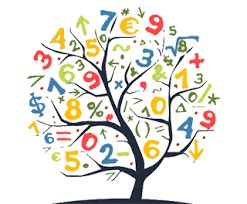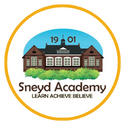Strategic Maths Lead – Mr J. Hyder 
Academy Maths Lead – Mrs L. Brown
Maths Governor – Mr N. Keeling
Curriculum Intent, Implementation and Impact in Mathematics
Intent
Mathematics is a creative and highly interconnected discipline that has been developed over centuries, providing the solution to some of history’s most intriguing problems. It is essential to everyday life, critical to science, technology and engineering, and necessary for financial literacy and most forms of employment. Mathematics is a journey and long-term goal, achieved through exploration, clarification, practice and application over time. At each stage of learning, children at Sneyd Academy should be able to demonstrate a deep, conceptual understanding of each topic and be able to build on this over time.
At Sneyd Academy we aim to ensure that children become fluent in the fundamentals of mathematics. Our curriculum rehearses basic concepts and gradually introduces increasingly complex problems over time, so that pupils develop conceptual understanding and the ability to recall knowledge rapidly and accurately.
There are 3 stages of learning:
- Basic: This can be understood as ‘shallow’ learning, where children touch the surface of the learning that is taking place. This type of learning is temporary and is often forgotten.
- Advancing: This type of learning is applied to problems and contextual understanding; it is therefore learning that ‘sticks’ and can be recalled and used.
- Deep: This type of learning can be transferred and applied in different contexts to solve non-routine problems; it is also used to reason within mathematics.
Deep learning can be achieved through the teaching of mathematics using the ‘mastery’ approach. A mathematics concept or skills has been mastered when a child can demonstrate it in multiple ways, using accurate mathematical language to explain their ideas, and can independently apply the concept to new problems in unfamiliar scenarios.
Implementation
At Sneyd Academy, we ensure that maths lessons are delivered in a way that develops lively, enquiring minds, encouraging pupils to become self-motivated, confident and capable in order to solve problems that will become an integral part of their future.
Children in the Foundation Stage are provided with the opportunities to develop and improve their skills in counting, understanding and using numbers, calculating simple addition and subtraction problems; and describe shapes and measures.
In KS1, children will develop their ability to recognise, describe, draw, compare and sort different shapes and use related vocabulary. Teaching will also involve using a range of measures to describe and compare different quantities such as length, mass, capacity/volume, time and money. By the end of Year 2, pupils should know number bonds to 20, be able to fluently recall 10, 2 and 5 times tables and be precise in using and understanding place value.
In KS2, children will become increasingly confident with number work. Pupils will develop their ability to solve a range of problems. Teaching at Sneyd Academy will ensure that our pupils have the opportunities to draw upon prior learning and make the links necessary to master mathematical concepts.
Impact
Children will become fluent in mathematical understanding and reasoning. They will have the ability to reason mathematically by following a line of enquiry, conjecturing relationships and generalisations, and developing an argument, justification or proof using mathematical language. They will be able to solve problems by applying their mathematics to a variety of routine and non-routine problems with increasing sophistication, including breaking down problems into a series of simpler steps and persevering in seeking solutions.
By the time our children leave Sneyd Academy, they will have:
- a quick recall of facts and procedures;
- the flexibility and fluidity to move between different contexts and representations of mathematics;
- the ability to recognise relationships and make connections in mathematics;
- felt successes as a mathematician and have a positive attitude towards maths.
Maths Lessons at Sneyd Academy
Mathematics is one of the core subjects taught within our curriculum and features very regularly on the timetable of each class in each year group. 4 A Day sessions are held as children enter class first thing in the morning (a good reason to ensure all children are on time to school each day.) These sessions rehearse and consolidate concepts which have been previously taught. They allow staff to identify misconceptions and support children whilst allowing children to develop confidence in key areas of maths.
Mathematics lessons are held daily from Y1 – Y6. They follow the format of starting by recalling previously taught content using a ’Recap Slide.’ These are highly visual images which encourage partner discussions so children are recalling information from their long term memories and using it again in their working memories. New information is taught to children, making as many links to previously taught concepts as possible, so as to maximise the chance of it being understood and retained. Children take part in fluency, reasoning and problem solving activities, independently and in groups. We use the CPA approach (see CPA Approach Link) and a range of resources to support their understanding. Scaffolds are used to help children conceptualise mathematics and support them in achieving age related expectations. Maths lessons are safe, calm environments where mistakes are celebrated and seen as key learning opportunities. This in turn encourages children to take more risks with their maths and removes the fear of being wrong.
Sessions end with plenary activities where staff assess levels of children’s understanding. This information informs the pace and levels of challenge of future lessons.
On a weekly basis, children from Y1 – Y6 receive a ‘Big Maths’ session. This lesson re-teaches and pre-teaches concepts to ensure that children retain information over time and are well prepared to receive and understand more complicated mathematical content. (See Big Maths Link) This session is also where multiplication tables are tested using out Marvellous Multiplication tables system. (See Marvellous Multiplications Link)

